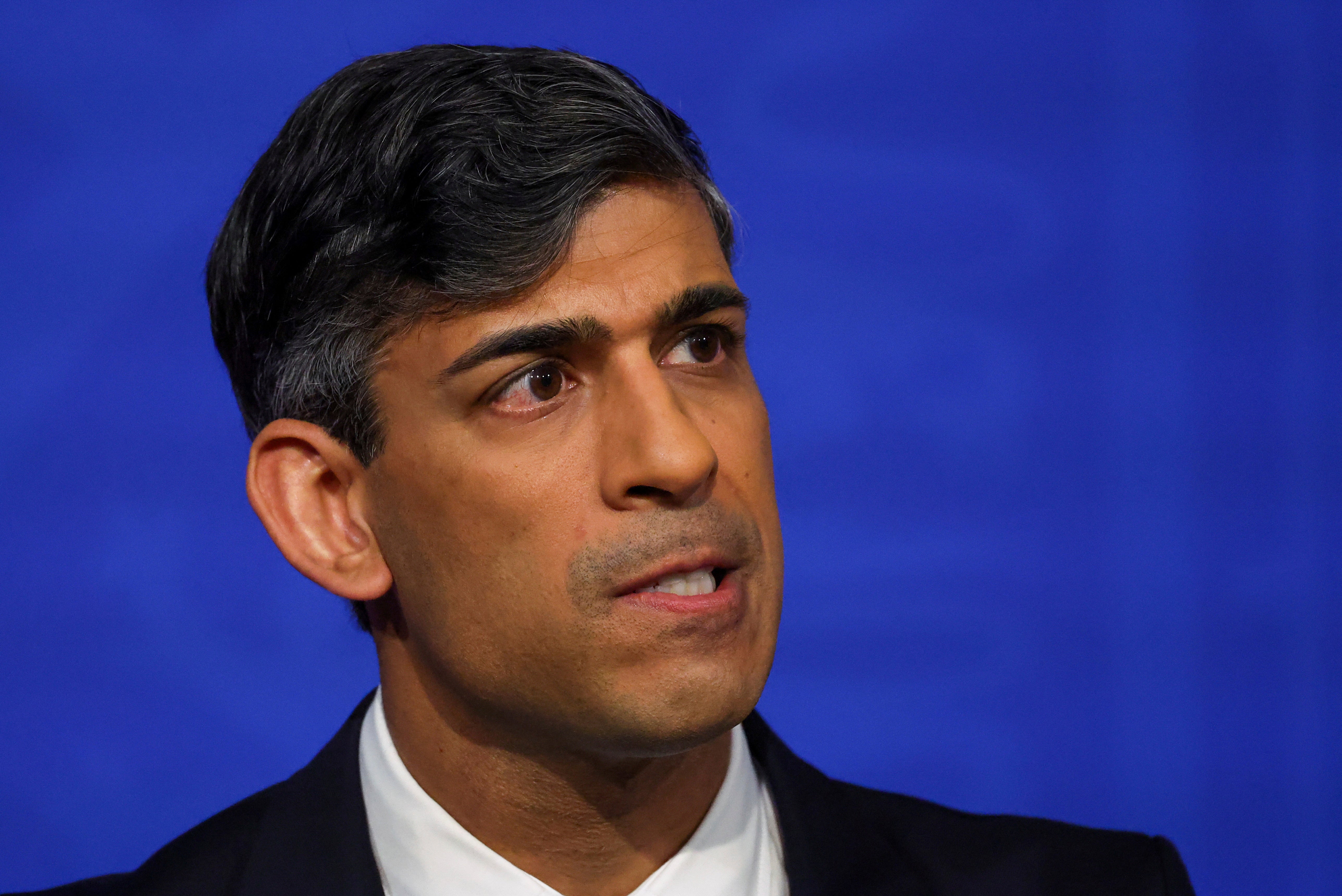Human rights groups condemn UK plan to send asylum-seekers to Rwanda after Parliament backs new law
Britain’s plans to send some asylum-seekers to Rwanda were swiftly condemned by international humanitarian organizations after Parliament approved legislation allowing the deportation flights to begin later this year

Your support helps us to tell the story
From reproductive rights to climate change to Big Tech, The Independent is on the ground when the story is developing. Whether it's investigating the financials of Elon Musk's pro-Trump PAC or producing our latest documentary, 'The A Word', which shines a light on the American women fighting for reproductive rights, we know how important it is to parse out the facts from the messaging.
At such a critical moment in US history, we need reporters on the ground. Your donation allows us to keep sending journalists to speak to both sides of the story.
The Independent is trusted by Americans across the entire political spectrum. And unlike many other quality news outlets, we choose not to lock Americans out of our reporting and analysis with paywalls. We believe quality journalism should be available to everyone, paid for by those who can afford it.
Your support makes all the difference.Britain’s plans to send some asylum-seekers to Rwanda were swiftly condemned by international humanitarian organizations after Parliament approved legislation allowing the deportation flights to begin later this year.
Both the U.N. refugee agency and the Council of Europe on Tuesday called for the U.K. to rethink its plans because of concerns that the legislation undermines human rights protections and fears that it will damage international cooperation on tackling the global migrant crisis.
“The new legislation marks a further step away from the U.K.’s long tradition of providing refuge to those in need, in breach of the Refugee Convention,” U.N. High Commissioner for Refugees Filippo Grandi said in a statement. “Protecting refugees requires all countries – not just those neighboring crisis zones – to uphold their obligations.”
The statement came just hours after Britain’s House of Lords dropped its attempts to amend the legislation, paving the way for it to become law. On Monday, Prime Minister Rishi Sunak said deportation flights to Rwanda would begin in 10-12 weeks.
Michael O’Flaherty, the Council of Europe’s commissioner for human rights, criticized the legislation for preventing asylum-seekers from asking the courts to intervene when they are they are threatened with being sent back to the countries they are fleeing.
“The adoption of the Safety of Rwanda (Asylum and Immigration) Bill by the U.K. Parliament raises major issues about the human rights of asylum seekers and the rule of law more generally,” O’Flaherty said in a statement. “The United Kingdom government should refrain from removing people under the Rwanda policy and reverse the bill’s effective infringement of judicial independence.”
The reaction came as French media reported that at least five people died Tuesday when a boat carrying about 100 or more migrants got into trouble while trying to cross the English Channel.
Sunak’s government says its deportation plans will help stop the tide of people entering Britain illegally because migrants won’t make the risky crossing in leaky inflatable boats if they know there is a chance they will be sent to Rwanda.
Small boat crossings are a potent political issue in Britain, where they are seen as evidence of the government’s failure to control immigration.
Sunak has made his plan to “stop the boats” a key campaign promise with his Conservative Party trailing badly in opinion polls ahead of a general election later this year.
The number of migrants arriving in Britain on small boats soared to 45,774 in 2022 from just 299 four years earlier as people fleeing war, famine and economic hardship paid criminal gangs thousands of pounds to ferry them across the channel.
Small boat arrivals dropped to 29,437 last year as the government cracked down on people smugglers and reached an agreement to return Albanians to their home country.
___
Follow AP’s global migration coverage at: https://apnews.com/hub/migration